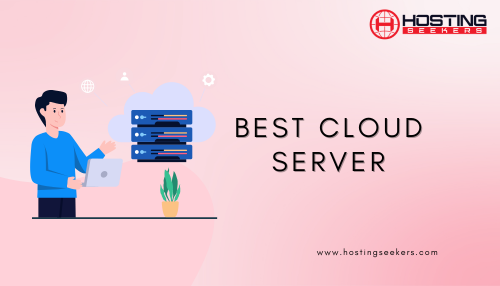Best Cloud Server Providers in 2024: A Comprehensive Guide

In the rapidly evolving landscape of digital infrastructure, choosing the right cloud server provider is critical for businesses aiming to enhance scalability, efficiency, and security. Cloud servers offer flexible computing resources delivered over the internet, eliminating the need for on-premises hardware and providing robust solutions for hosting applications, websites, and data storage. This guide explores the top cloud server providers in 2024, highlighting their key features, benefits, and suitability for various business needs.
What to Consider When Choosing a Cloud Server Provider
Before diving into the details of each provider, it's essential to understand the criteria for evaluating cloud server services:
-
Performance and Reliability: High uptime, fast response times, and reliable service level agreements (SLAs) are crucial for uninterrupted business operations.
-
Scalability: The ability to easily scale resources up or down based on demand ensures optimal performance and cost-efficiency.
-
Security: Robust security measures, including data encryption, network firewalls, and compliance certifications (e.g., SOC 2, ISO 27001), protect sensitive business data.
-
Support: Responsive customer support with expertise in cloud technologies helps resolve issues quickly and minimize downtime.
-
Cost: transparent pricing models that align with usage patterns and provide value for money.
Top Cloud Server Providers in 2024
1. Amazon Web Services (AWS)
Amazon Web Services (AWS) remains a leader in the cloud computing market, offering a comprehensive suite of services and global infrastructure.
Key Features:
Extensive range of cloud services, including compute, storage, databases, and AI/ML.
Global presence with multiple data centers worldwide for low-latency performance.
High reliability with robust security features and compliance certifications.
Flexible pricing models include pay-as-you-go and reserved instances.
2. Microsoft Azure
Microsoft Azure provides a versatile cloud platform integrated with Microsoft's ecosystem of products and services.
Key Features:
Seamless integration with Microsoft tools like Office 365 and Windows Server.
Strong support for hybrid cloud environments with Azure Stack.
Advanced AI and machine learning capabilities through Azure AI.
Comprehensive security features and compliance certifications.
3. Google Cloud Platform (GCP)
Google Cloud Platform (GCP) offers cutting-edge cloud services known for their data analytics and machine learning capabilities.
Key Features:
Advanced data analytics tools with BigQuery and Dataflow.
Global network infrastructure for fast and reliable performance.
Competitive pricing with sustained use discounts and committed use contracts.
Emphasis on open-source technologies and Kubernetes for container management.
4. IBM Cloud
IBM Cloud stands out with its emphasis on AI and hybrid cloud solutions, catering to enterprise-level applications and workloads.
Key Features:
AI-powered services with IBM Watson for analytics and cognitive computing.
Hybrid cloud capabilities for seamless integration with on-premises infrastructure.
Strong security measures, including data encryption and threat detection.
Industry-specific solutions and compliance certifications.
5. Alibaba Cloud
Alibaba Cloud leads the cloud market in Asia and is expanding its global footprint with a diverse range of cloud services.
Key Features:
Strong presence in Asia, with data centers in key global regions.
Comprehensive suite of cloud services, including AI/ML, big data analytics, and IoT.
Competitive pricing and flexible payment options.
Robust security measures and compliance certifications.
Conclusion
Choosing the best cloud server provider depends on your specific business needs, budget, and technical requirements. AWS, Microsoft Azure, Google Cloud Platform, IBM Cloud, and Alibaba Cloud are leading providers offering diverse features, scalability, security, and global infrastructure. By evaluating each provider's strengths in performance, reliability, security, and support, businesses can make informed decisions to leverage cloud technology effectively for their operations, innovation, and growth in 2024 and beyond.
- Art
- Causes
- Crafts
- Dance
- Drinks
- Film
- Fitness
- Food
- Games
- Gardening
- Health
- Home
- Literature
- Music
- Networking
- Other
- Party
- Religion
- Shopping
- Sports
- Theater
- Wellness




